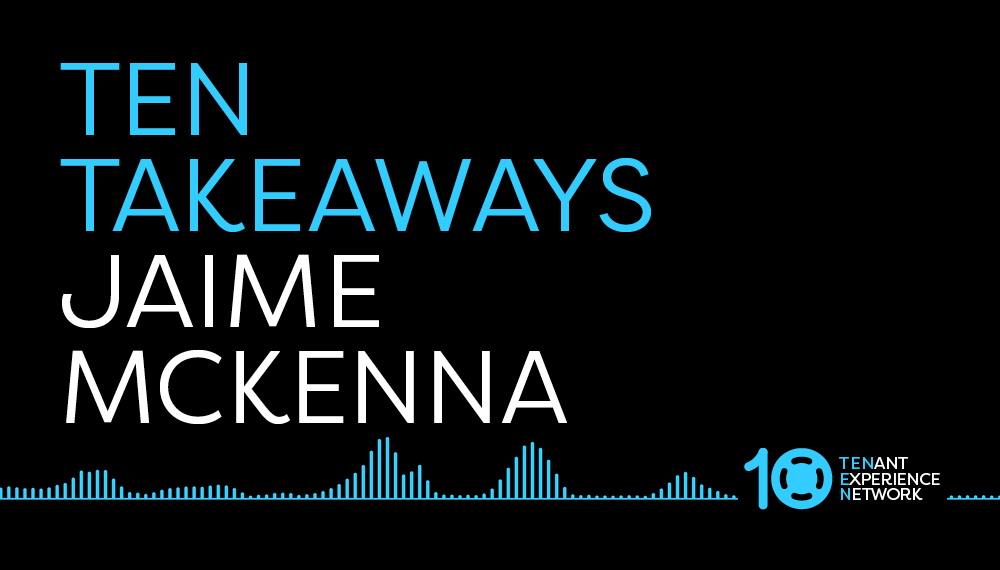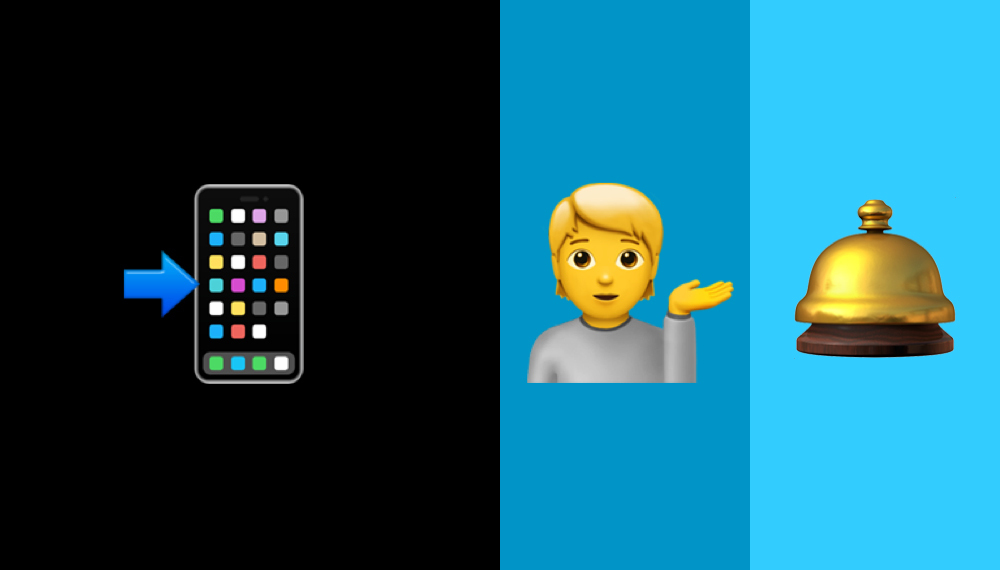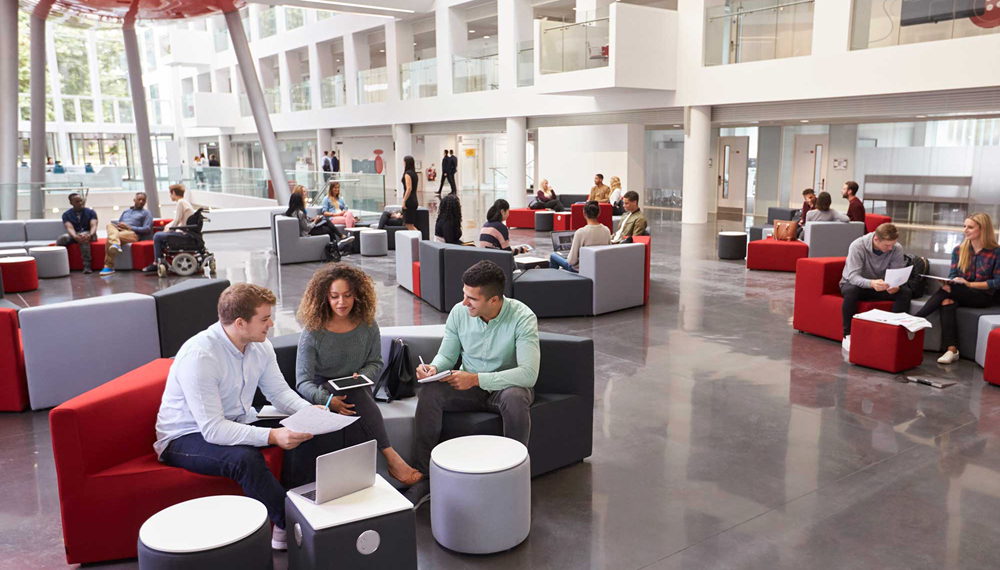
TEN Takeaways from Jaime McKenna, Managing Director, Group Head of Real Estate at Fengate
ICYMI: HILO’s David Abrams was joined by Jaime McKenna, Managing Director, Group Head of Real Estate at Fengate Asset Management on the TEN podcast to chat about why sensors and data are worthy of future technology investment. Here are some of our takeaways:
Small company, big impact
Jaime’s first major role as an accountant at Bell Canada included policy research and advising on how the changing standards in accounting would ultimately affect operations. As she advanced her career on the M&A side, Jaime was able to get early exposure to smaller companies as Bell acquired ones with 20 to 200 employees. She shares that her impetus to change roles “wasn’t so much [about wanting] to go into real estate as much as I wanted to go to a smaller company. One that was big enough to have a meaningful presence in Canada, but small enough that I felt like I could make an impact.”
You’ve got to have grit
When asked why she was so uniquely suited for the opportunity, Jaime shares that she credits her grit for her success. Coming right out of school, Jaime reflects on starting from nothing, and knowing that she needed to work her way up. She adds, “when you’re driven by survival instincts, you think you’re working the same pace as everybody else, but you’re probably working harder ’cause there’s a little bit of fear.”
Humility translates into approachability
Jaime shares: “I think humility is really important because when you have these mentors, and I’ve had mentors throughout my career, you listen, and you take the feedback, and you self-reflect, and you’re probably harder on yourself because you think oh my God, I’m going to fail and I can’t afford to fail. So I think a lot of those things just formulated who I was early in my career and has stuck with me. And, you know, I talk about the VP of acquisitions at Minto. I mean, for me, I wanted to show him as much humility as possible because I wanted him to know I don’t know this area, so teach me and I will listen, I will be a sponge. And I just think that humility translates into approachability which translates into good communication skills. And that’s probably been a big help for me.”
Sensors are the future
David asks Jaime what she would do with an additional $1 million of budget. Jaime explains that, “in terms of my portfolio what I’d like to do is start to come forward in the field of technology. And, you know, one area that fascinates me is understanding how you can use sensors at a property level, collect that data, and do things in a meaningful way for either, whether it’s energy efficiency, traffic flow comprehension, or even just tenant experience. So, you know, if I had a million dollars, I would plow a bunch of buildings full of sensors, have a proper data management strategy around it, and spend six months understanding what it was telling me, and then roll that out across the balance of my portfolio.”
Returning to the office isn’t a black and white decision
David shares that a return to the workplace is going to be much slower than we originally thought, and asks Jaime about her take on how flexibility and working from everywhere will manifest in 2021. Jaime cites a variety of critical decision criteria in the “return to office” including social elements, financial elements, commuting, the symbolic hours of 8-6 to please a boss, all requiring consideration as companies decide what to do with the office.
We need to listen to our tenants
Jaime and David both acknowledge that the COVID-19 pandemic has accelerated the importance of Tenant Experience. Jaime says “It’s always been important, but it’s done two things. One is, it put our tenants in crisis. And those firms that took the time to call every tenant and understand, you know, what is their current situation, what’s their ability to pay their rents, what is their ability to stay in this space? We’re ahead of the curve, and I know we personally called every single one, and we maintained collections at over 90% in a suburban office and industrial portfolio, which was sort of unheard of. And I really credit that to understanding what our tenants wanted.”
Consider the challenges
Jaime shares some challenges that she is faced with right now. She says “Our biggest challenge right now is taking our position on the future of the financial elements of real estate. So when are rents going to recover, both on a commercial and residential standpoint? We know that we’re at an all-time low. I think the stat on vacancy that came out the other day in the GTA is the highest it’s been in 50 years. So we know that’s not where it’s going to be. We’re just sort of trying to develop an opinion on how quickly is that going to recover, and how does that factor into our future investment decisions? Also trying to figure out what’s going to happen to things like property taxes, DCs, etc. with so much money going into the recovery, how is that going to hit us on the back end? And, you know, we’ve had decades where we’ve been able to be pretty accurate in those assumptions, and everything’s been thrown up right now.”
A forward thinking perspective
After considering the challenges, Jaime continues, “I would say on more of a thinking forward perspective is what does health and safety look like at the building level going forward? We know that once everybody’s vaccinated, probably we won’t have masks and gloves, and one way stickers on our office floors, but what do things like air filtration look like, cleaning products, what are the expectations from our tenants going to be? So we’re spending a lot of time studying what makes sense to invest in versus might be a one-shot deal because people are being opportunistic during the pandemic.”
First stop: Italy
David asks Jaime what city or country she would travel to first when we can travel again and she says “I would travel Italy because I’ve always wanted to go to Italy. Also, you know, I work for an Italian family, and I hear all kinds of great stories. And I’m also studying my wine designations, so Italy would be a logical first place to travel to after the pandemic’s done.” David adds “Well, we have that in common too!”
The workplace discipline
The number one thing Jaime misses about the workplace is the people. She also explains that she misses “the discipline of getting up and maybe you work out and get dressed, and you pour your coffee, and you could jump in your car. Like, there’s an element of that discipline which I miss. And I think the lack of delineation between the workplace and home is not healthy as a permanent solution.”
We would like to thank Jaime McKenna for joining us on the TEN podcast and for sharing her journey, from early beginnings as a financial accounting expert, to now leading the team that is driving Fengate’s real estate business. If you’d like to hear more of Jaime’s interview, click here. Stay tuned for more episodes and takeaways from leading professionals and industry experts who all have something to say about experience in the built world, and the impact that technology is having on the largest asset class in the world, commercial real estate. Until then, wishing you all continued success in building community where you work or live.
- January 26, 2021


